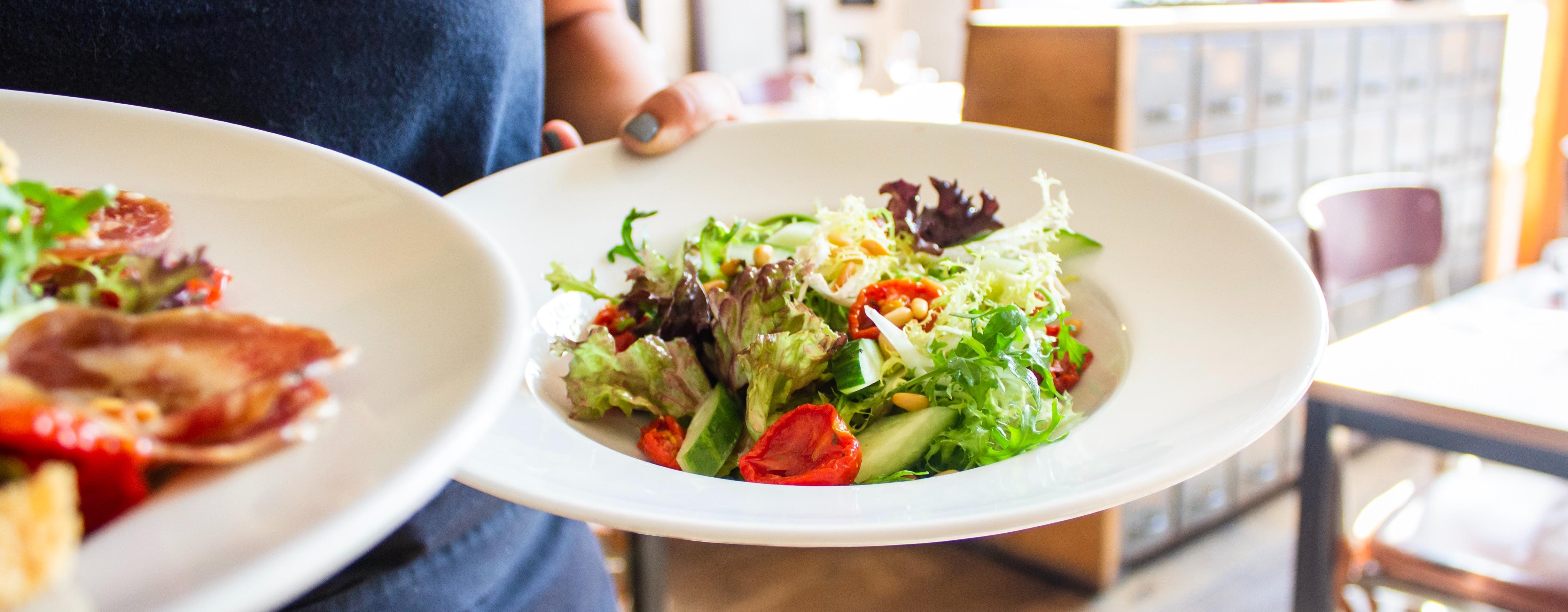If your New Year's Resolution is to eat better, Susie Jennings from the UCO's nutrition team shares some tips for simple changes to your diet which can help keep you on track.
"Happy New Year! A lot of us have spent the Christmas break doing not much exercise and a lot of eating, and you may have made a New Year’s resolutions about getting fitter, losing weight or eating more healthily.
You may feel like you want to do a total overhaul of your lifestyle, but the problem with this approach is that the changes you make probably won’t last until February. Although it’s tempting to set yourself big challenges it’s more effective in the long run to make smaller changes that you can stick to. If you have a bad day and break your resolution just draw a line under it and get back on it tomorrow.
Following an extremely restrictive diet won’t be fun and may not be healthy, but filling your day with lots of healthy foods will make you feel healthier and is likely to result in a slow, steady, sustainable weight loss if you’re overweight or obese. If you’re trying to lose weight losing 1-2 pounds a week is a good target to aim for.
Many people will also be giving a vegan diet a try for Veganuary. As a long-time vegan and vegetarian my advice is to try and cook with fresh ingredients as much as possible and avoid eating too many processed foods, which are often high in sugar and salt and low in nutrients. There are a lot of great vegan cook books and websites out there so you should be able to find some recipes that suit your taste and lifestyle. You will need to get some vitamin B12 though, either as a supplement or by eating fortified foods. Marmite and nutritional yeast are good sources.
Here is some guidance everyone can follow to achieve a healthy diet;
- Eat at least five portions (80g) of a variety of vegetables and fruit a day. This can be fresh, frozen or tinned. 80g is approximately the size of 1 apple, 1 handful or 3 tablespoons. 1 glass of fruit juice can also be counted, but only as 1 portion of your five a day regardless of how much you drink because juicing removes a lot of the fibre.
- Steam, grill or stir-fry vegetables or eat them raw to retain as much of the nutrients as possible. Water used to boil vegetables can be used in sauces, soups, stews or casseroles so you are still getting the nutrients that that were lost from the vegetables into the cooking water.
- Eat at least 3 portions of wholegrains a day. One serving is a bowl (around 30g) of porridge, muesli or high fibre cereal, a serving (around 23g) of wholewheat pasta or brown rice, or a slice of whole meal multigrain bread or rye bread.
- Choose lean protein sources such as chicken, fish, beans and pulses and low fat dairy. Adults require around 50g of protein a day and most people in the UK eat more than this. Avoid red meat, processed meat and high fat sources as they increase the risk of many health problems.
- Eat 2 servings of fish a week, one of which should be oily fish, such as salmon, mackerel, sardines or fresh tuna (not tinned). Vegan omega-3 supplements are available.
- Use herbs, spices and citrus fruits to flavour food instead of using salt. A maximum of 6g or 1 teaspoon of salt a day is recommended. Many processed foods are already high in salt even if you don’t add any yourself.
- Snack on fresh fruit, vegetable sticks, a small handful of unsalted nuts or plain popcorn instead or crisps or chocolate.
- Drink 6-8 glasses of water or other low sugar fluids, such as herbal or fruit teas, tea or coffee in moderation.

